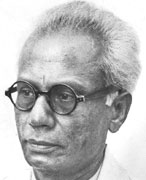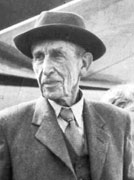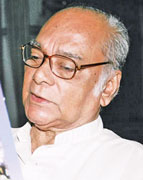 Use and abuse of institutional memory Use and abuse of institutional memory
 Remember Leonard Woolf's work Village in the Jungle (1913) and Leel
Gunasekara's novels Athsana' and Pethsama (1961). Both were people who
used their institutional memory to form the backdrop for their creative
works that also border on biographical episodes. Woolf was Assistant
Government Agent in Hambantota during British rule and Gunasekara, a top
Government official in post-independence Sri Lanka serving among rural
communities in the dry zone. Remember Leonard Woolf's work Village in the Jungle (1913) and Leel
Gunasekara's novels Athsana' and Pethsama (1961). Both were people who
used their institutional memory to form the backdrop for their creative
works that also border on biographical episodes. Woolf was Assistant
Government Agent in Hambantota during British rule and Gunasekara, a top
Government official in post-independence Sri Lanka serving among rural
communities in the dry zone.
The lesser-known memoirs of Dr Peterson, an early 20th Century
British medical practitioner in Government service in then Ceylon, was
presented to us recently as an edited work. The insights they bring to
us of the institutions of their times, ways of life of the people and
the social dynamics, are invaluable in our attempts at exploring and
understanding the environment of those times.
A fine mix
Then we had Henry Jayasena present his play Janelaya (1962) also
revolving around institutional memory he had, of his Government office
in the Public Works Department (PWD). The work routine, power assumed by
the office peon, many transfers of heads and the travails of being a
clerk, all formed the satire he unfolded for us in the theatrical form.
There are others like them, who have incorporated their institutional
memory in literary and academic work they have authored, while those the
likes of Woolf, Gunasekara and Jayasena have made lasting impressions in
our minds of their own memories, transforming them into a fine mix of
fact and creativity. Gunesakara's latest work Guru Pujawa (2010) where
he venerates his teachers of yore with anecdotes of happenings, presents
institutional memory of another kind.
Sensitivity and finesse
That in fact, takes us back to our all time great novelist and social
analyst Martin Wickramasinghe. His trilogy Gamperaliya (1944), Uganthaya
(1948) and Kaliyugaya (1957) are indeed significant literary works that
spreads a wider canvass of institutional memory as its backdrop.
 |
 |
 |
|
Martin Wickramasinghe |
Leonard Woolf |
Henry Jayasena |
From the serendipitous environment of Koggala of his childhood, the
township of Galle of his studenthood to the world at work in the City of
Colombo, his experiences within various forms of formal and informal
institutions are unfolded for us. The transformation of our society from
the colonial, feudal to the modern, within the context of an industrious
commerce centred Southern ethos, is portrayed with a sense of
sensitivity and finesse.
I was curious as to why we do not see many works such as those
mentioned earlier in Sri Lanka's literary context of today. Is it
because of the rapidity at which things have being changing around us?
Is it because of the instability we have witnessed in our midst, that
memories of our institutions do not have a chance to take firm root
within our social and cultural ethos? Is it the erosion of confidence in
the very fragile social and administrative organisations, we have
designed for ourselves in the last few decades? Or was it the fears,
tears and the losses the many families had, within the context of the
lives taken away since the youth insurrection in 1971, Black July of
1983, followed by the 1989-90 era and the intensification of terrorism
that saw its birth in the North and the East?
There is no doubt we have had many sociologists and political
analysts present serious studies of the ongoing saga of our recent
history.
We have also seen many cinematic creations, poetic works and other
creative writings based on the pain and the suffering we underwent as a
nation in the past few decades. But it is not often we see someone
document in a complementary way about this recent past, except for a few
anecdotal accounts of Prime Ministers and Presidents by their own
secretaries who were top civil servants.
There are also not so complimentary accounts written about our recent
heads of State and even the head of the judiciary. These are accounts
reminiscing on negative institutional memory by analysts playing their
rightful role as social activists.
Seeking definition
To explore this very concept of institutional memory further, I
ventured to seek its meaning in the Wikipedia, the virtual encyclopedia.
It is given as "a collective set of facts, concepts, experiences and
knowhow held by a group of people.
As it transcends the individual, it requires the ongoing transmission
of these memories between members of this group. Elements of
institutional memory may be found in corporations, professional groups,
government bodies, religious groups, academic collaborations and by
extension in entire cultures".
It further states that "Institutional memory may be encouraged to
preserve an ideology or way of work in such a group. Conversely,
institutional memory may be ingrained to the point that it becomes hard
to challenge if something is found to contradict that which was
previously thought to have been correct". In an organisational sense
institutional memory is about 'benchmarking' or 'instituting values',
where what is tested and proven to be the right way to do things, may be
taken as a way that must be retained and vice versa.
Control and use
Institutional knowledge is defined as the process used by "organisations
translating historical data into useful knowledge and wisdom. Memory
depends upon the preservation of data and the analytical skills
necessary for its effective use within the organisation," it said.
Religion is described as being "one of the significant institutional
forces acting on the collective memory attributed to humanity". On the
other side of the coin, the evolution of ideas in Marxist theory is
presented as "the mechanism whereby knowledge and wisdom passed down
through the generations is subject to economic determinism". What is
interesting and noteworthy is that "in all instances social systems,
cultures and organisations have an interest in controlling and using
institutional memories" as we see it being misused so blatantly in our
current social, economic and cultural milleu.
Credibility with stakeholders
Take the case of most of our State institutions, where changes occur
so often in personnel, both in top management and within the cadres, the
few who remain behind, often with political clout and favour, begin to
rule the roost with faulty claims of institutional memory. Wrong values
are then instituted with wrong practices taking root, victimisation of
those that oppose takes place and systems begin to loose its credibility
with the public, who are the key stakeholders of the process. It is here
that a breakaway change must happen if Sri Lanka is to regain and
re-establish a credible institutional knowledge base, thereby leading to
setting in place a system of institutional memories we can be all proud
of. It takes sound values-based benchmarking, that must come firmly from
our political and civil society leadership, to make it work.
Right leadership
Rightfully, our head of State has taken on this task and is
redirecting our nation's energies towards social and economic
development of all regions, with a special focus on the war affected
areas. National reconciliation and building unity for attaining lasting
peace must form the base of the new structure of institutional knowledge
and memory.
This can only be possible if the leadership can transform the vision
now in place into solid action, with each and every member of the team
responsible for seeking and making it happen buying into it, with
rational understanding, a sense of commitment and without reservation.
Cases of dissent of what is good, needs to be dealt with firmly.
When we get that right we can once again look towards major creative
works coming into our fore, much like those of Woolf, Gunasekara and
Jayasena, transcending the fears, pains and tears of our recent history.
|



